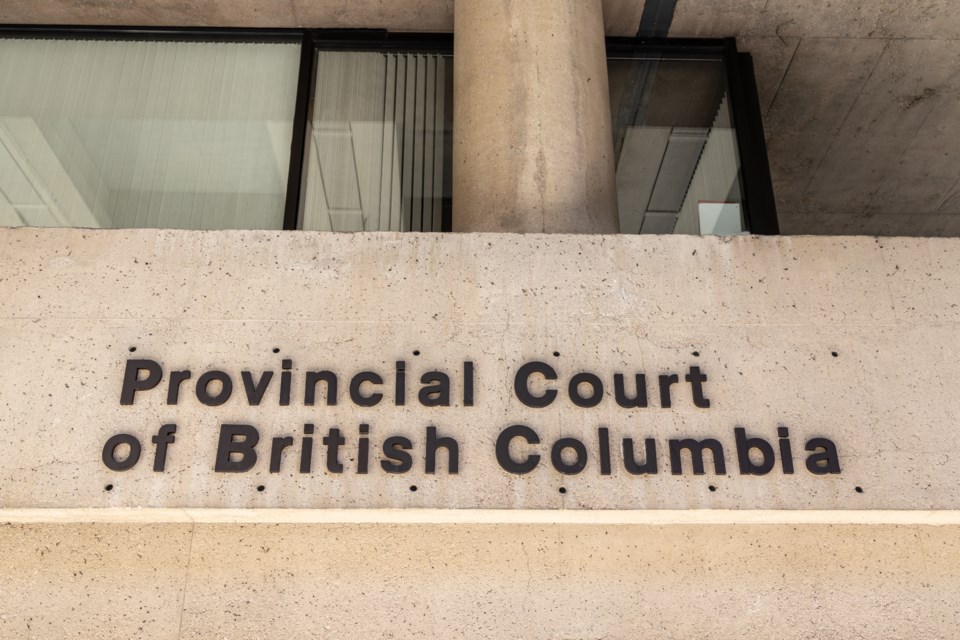For British Columbians who have not interacted with the justice system, perceptions are usually developed through media coverage.
We rarely see stories about traffic violations, divorces or small claims disputes on the airwaves, unless a celebrity is involved in them. This means that many residents rely on criminal proceedings as their only window into the efficacy of the system.
The resolution of high-profile cases can play a role in the way British Columbians understand the system as a whole. Over the past couple of decades, we have seen plenty of dismay expressed at specific verdicts, whether through call-in radio shows or social media posts. Still, the experiences of those who have had their day in court may differ greatly from those whose opinions are shaped by ignorance and anger.
When Research Co. and Glacier Media asked British Columbians to rate the justice system on a scale of one to 10, 25 per cent place their vote on the lowest end of the spectrum with a grade of 1, 2 or 3. Fewer (19 per cent) cast their virtual ballot for the highest ratings available: 8, 9 or 10.
Digging deeper into the answers, 13 per cent of British Columbians provided the poorest grade available to the province’s justice system – a proportion that rises among those aged 55 and over (17 per cent) and among residents of southern B.C. (21 per cent) and northern B.C. (23 per cent).
Only three per cent of British Columbias of European descent granted the lowest grade available to the justice system. The numbers are higher among residents of three other ancestries: South Asian (10 per cent), East Asian (17 per cent) and Indigenous (23 per cent).
In our survey, close to half of British Columbias (47 per cent) acknowledge having interacted with the province’s justice system in any of four different ways. More than one in five (22 per cent) had to go to traffic and bylaw court, while fewer dealt with family (20 per cent), criminal (17 per cent) or small claims (10 per cent) matters.
Our perceptions on the fairness of the system vary depending on our experiences and the type of court in which they happened. Practically three in five British Columbians who disputed a driving ticket or a parking violation (59 per cent) say the resolution was fair to them. On this category, the age gap is striking. While 76 per cent of British Columbians aged 18 to 34 say the outcome of their visit to traffic and bylaw court was fair to them, the level drops to 58 per cent among those aged 35 to 54 and to just 46 per cent among those aged 55 and over.
Most British Columbians who were compelled to go to small claims court (59 per cent) say the resolution was fair to them. On this category, the big fluctuation is on gender. While 59 per cent of men welcomed the resolution to their case, only 40 per cent of women hold the same point of view.
The overall situation is similar for family court, with 53 per cent of British Columbians who experienced discussions about a divorce, custody arrangement or spousal support saying the resolution was fair. The gender gap flips on these proceedings. Women are more likely to say they were satisfied with the outcome (57 per cent) than men (49 per cent).
Finally, we head to the most contentious of all tribunals. British Columbians who had to go to criminal court are evenly divided on whether the resolution was fair (46 per cent) or unfair (45 per cent). On this category, there are severe discrepancies on ethnicity. Resolutions are deemed fair by most residents of South Asian (66 per cent) and Indigenous (53 per cent) heritage, but the numbers are lower among those of European (47 per cent) and East Asian (40 per cent) descent.
British Columbians are aware of what can be done to make things better. We found that 58 per cent of British Columbians agree that the justice system has not done enough to address bias against Indigenous Canadians. Respondents of all ethnicities reach consensus on this unfortunate legacy, including 72 per cent of those with Indigenous ancestry.
More than four in five British Columbians (82 per cent) think the justice system needs more resources because it takes too long to get cases dealt with. A slightly smaller proportion (79 per cent) believe the outcome of cases depends heavily on how good your lawyer is – a reminder of how crucial it is to have properly funded and resourced legal aid services.
Almost three in four of the province’s residents (74 per cent) believe that the justice system is too soft on offenders when it comes to criminal cases. Among British Columbians aged 55 and over – those who are more likely to rely on traditional media to follow trials and verdicts – the numbers rise to 85 per cent.
With the opposition BC Liberals focusing on crime as an issue of concern, there will be a fundamental challenge for the governing BC NDP)in the next couple of years: re-establish a feeling of safety in urban areas while discussing the limitations of the system on issues such as sentencing. The growing chorus of “experts” on social media will not make this an easy task.
Mario Canseco is president of Research Co.
Results are based on an online study conducted from December 16 to December 18, 2022, among 800 adults in British Columbia. The data has been statistically weighted according to Canadian census figures for age, gender and region in British Columbia. The margin of error – which measures sample variability – is plus or minus 3.5 percentage points, 19 times out of 20.



